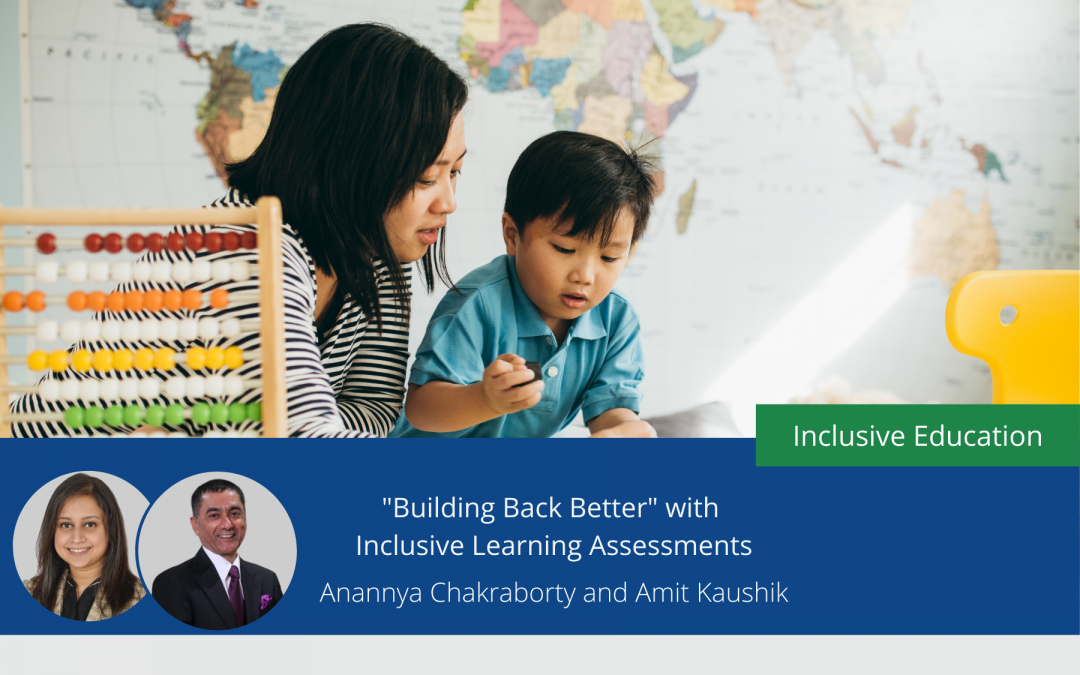
“Building back better” with Inclusive Learning Assessments
School closures during the COVID-19 pandemic have threatened inclusion and exasperated the existing inequalities in education. Across the globe, children with disabilities are more likely to suffer from learning losses (OECD, 2020).
During this crisis, in Europe it was reported that limited guidance from international organisations was available on inclusion, measures taken immediately were sometimes inadequate, digital education challenged inclusion, and limited support could be provided to vulnerable children and their families.
Internationally, the term, building back better is being increasingly used in the global call for making recoveries in the economy and society in the post-COVID world. Our research shows, that in this context, education systems need to consider the role of reliable and rigorous learning assessment data in the education of children with disabilities. Education stakeholders will have a true picture of learning only when children with disabilities are included in all forms of learning assessment. On the ground, data will help teachers to target teaching appropriately so that every child progresses in their learning.
The Programme for International Student Assessment (PISA) countries, many of which are in Europe, have started including children with disabilities in the assessment programme. Despite an increase in the participation of children with special needs in PISA over the administration cycles, they still represent below 3% of the total number of participants (LeRoy et al. 2019).
Equitable Learning Assessment in the Asia-Pacific Region
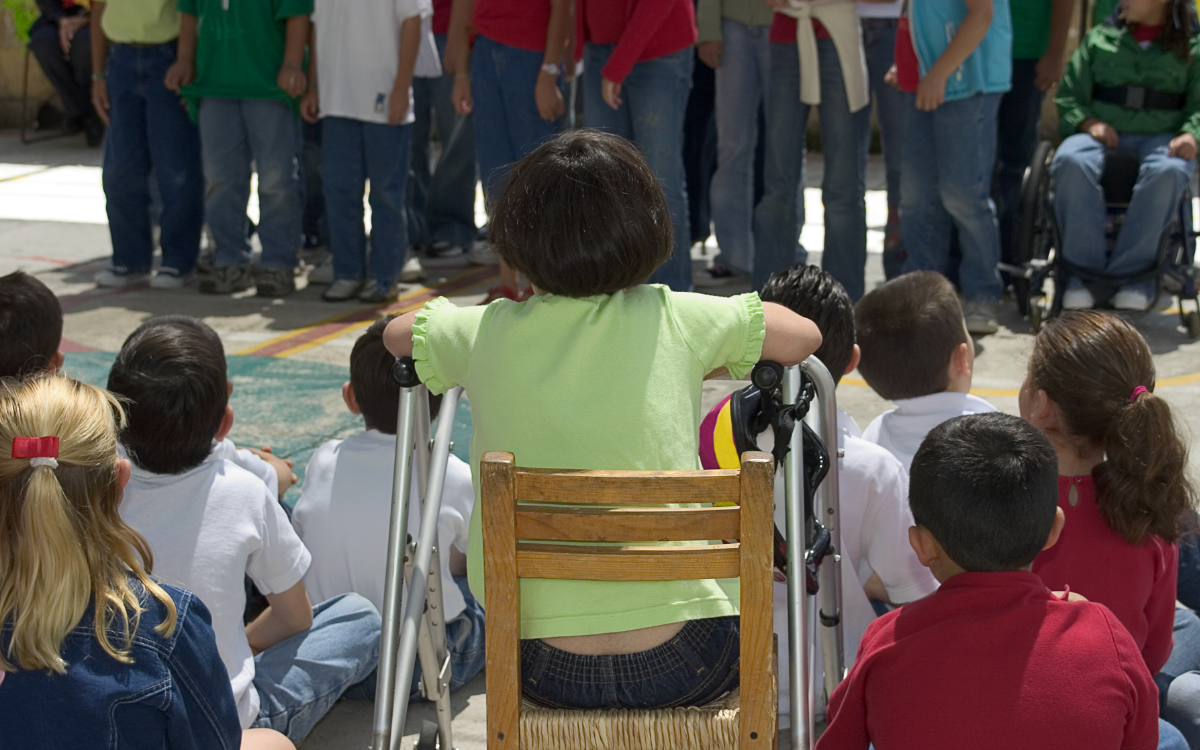
Let us move beyond Europe and look at the Asia-Pacific Region, where countries have diverse policies, barriers, preparedness, and progress when it comes to inclusive education and inclusive learning assessments in particular. In the Asia-Pacific region, there has been a sluggish transition to inclusive education (Wu-Tien, Ashman, & Yung-Wook, 2008; Forlin, 2010). Most countries have a dual system of schooling where children with moderate disabilities study in general schools and those with severe difficulties in special schools.
Our review Equitable Learning Assessments for Students with Disabilities found that learning assessment practices vary across countries in the Asia-Pacific. Countries with a history of participating in national and international assessments try to make their assessments inclusive through accommodations. The review reported the use of testing accommodations in Australia, Hong Kong (SAR China), India, the Philippines, and Singapore in the Asia-Pacific region. However, children with severe disabilities or children who cannot be accommodated are left out. Some countries assess students with disabilities through formative methods (Chakraborty et al. 2019). It has to be kept in mind that inclusive learning assessments are an outcome of developments in inclusive education and advances in learning assessment.
Ideally, a single assessment should measure the learning of all students without the need for accommodations (Douglas et al., 2016). But in most education systems, accommodations are used to make assessments accessible to children with disabilities. However, the use of accommodations needs to be normalised in every level of testing – classroom, national, and international assessments (Chakraborty et al., 2019).
National-level policies on inclusive education and assessment practices determine to what extent children with disabilities are included in assessments. For example, in Hong Kong (SAR China), the SAME (Systematic Approach matching Mainstream Education) system provides access to children with disabilities to the central curriculum (Forlin, 2010). Similarly, specific country level mandates on assessment will support the inclusion of children with disabilities in classroom, national, or international assessments.
Across the world, teachers continue to face challenges in assessing students with disabilities (Hussu & Strle, 2010; Brookhart & Lazarus, 2017). In the Asia- Pacific countries, not many teaching staff have been trained in inclusive education (Sin, Tsang, Poon, & Lai, 2010). This is even true for Singapore, which has a reputation for high scores in international assessments. The Singaporean education system has short and less rigorous training for special educators (Walker & Musti-Rao, 2016).
Teachers as Agents of Change
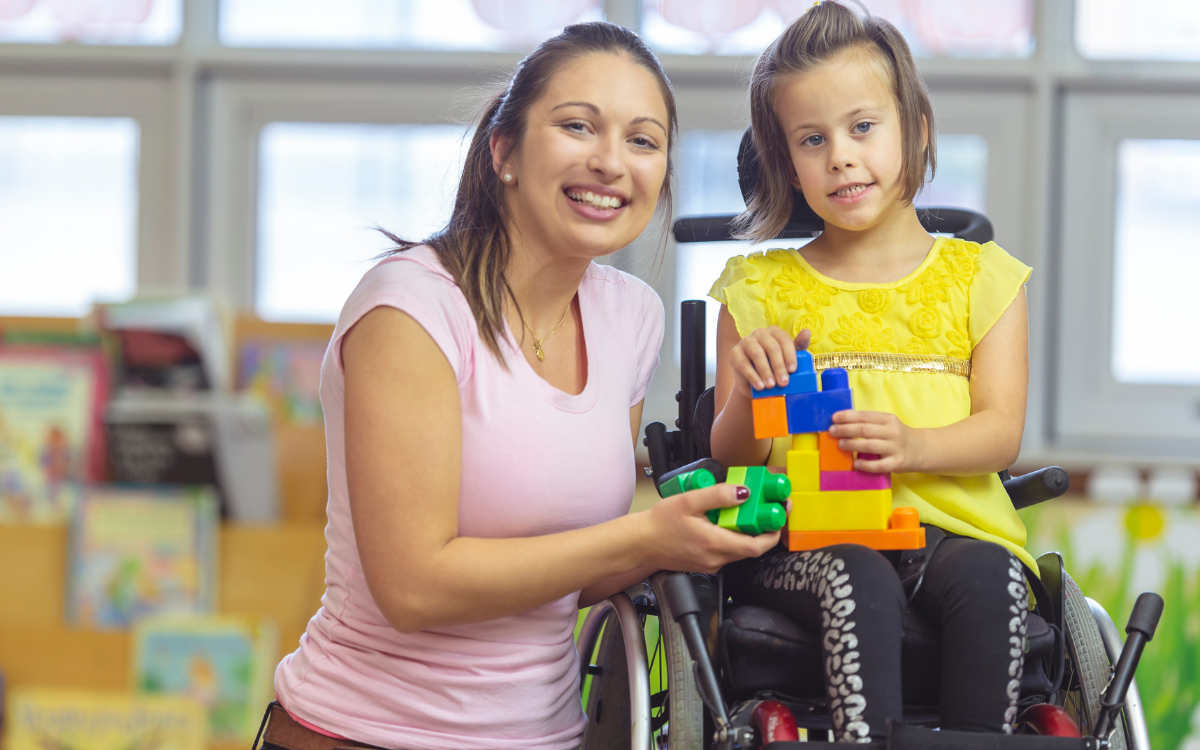
Our review suggests that teachers are powerful change agents in making inclusive assessment a reality, especially in middle- and low-income economies. To enable this change, development partners should prioritise the professional development of teachers in the complex topics of inclusive education and learning assessments.
This training should include all teachers from pre-service (student teachers), in-service (part-time/full-time school teachers), to special educators. Along with this, professional development courses should be designed to eliminate stigma and prejudices about disabilities. Moreover, school leaders should be trained regularly as they are responsible for setting the culture for assessment and inclusion in schools (Chakraborty et al., 2019).
Investments in research and projects on inclusive education, professional learning, and learning assessments are critical for making advancements in the field of inclusive learning assessments. As education systems are being reshaped to close learning gaps in the wake of the COVID-19 pandemic, strong partnerships between development partners, governments, and non-government organisations can contribute immensely to this area of inclusive assessment.
Other blog posts on similar topics:
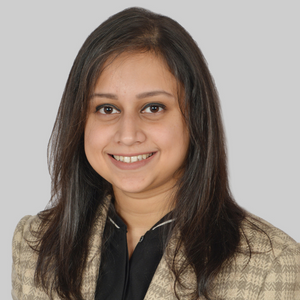
Anannya Chakraborty,
Senior Communications Officer, ACER India
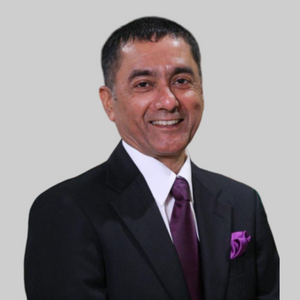
Amit Kaushik
CEO, ACER India
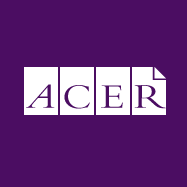
ACER India is an independent, not-for-profit research organisation providing world class research, educational products and services to India and the South Asia region.
Follow ACER India on social media:
References and Further Reading
‘Building back better’ may seem like a noble idea. But caution is needed https://theconversation.com/building-back-better-may-seem-like-a-noble-idea-but-caution-is-needed-154587
Building back better – a sustainable and resilient recovery after COVID-19 https://www.oecd.org/coronavirus/policy-responses/building-back-better-a-sustainable-resilient-recovery-after-covid-19-52b869f5/
Building Back Better – achieving resilience through stronger, faster, and more inclusive post-disaster reconstruction https://documents1.worldbank.org/curated/en/420321528985115831/pdf/127215-REVISED-BuildingBackBetter-Web-July18Update.pdf
The Impact of COVID-19 on Inclusive Education at the European Level https://www.european-agency.org/sites/default/files/COVID-19-Impact-Literature-Review.pdf
Students with special educational needs within PISA, (LeRoy et al. 2019) https://www.tandfonline.com/doi/abs/10.1080/0969594X.2017.1421523
Inclusion in High-Achieving Singapore: Challenges of Building an Inclusive Society in Policy and Practice (Walker & Musti-Rao, 2016) https://files.eric.ed.gov/fulltext/EJ1114835.pdf
This thematic review Equitable Learning Assessments for Students with Disabilities has been funded by the Australian Council for Educational Research (India). The authors are grateful to Network on Education Quality Monitoring in the Asia-Pacific (NEQMAP), UNESCO Bangkok for publishing the review.
Full report: Chakraborty, A., Kaushik, A., & UNESCO Office Bangkok and Regional Bureau for Education in Asia and the Pacific. (2019). Equitable learning assessments for students with disabilities(NEQMAP thematic review).UNESCO Office Bangkok.https://unesdoc.unesco.org/ark:/48223/pf0000372301?posInSet=2%26queryId=e5a90c3e-c567-4f6a-9eeb-d2f712203481
Read about ACER’s ongoing review of professional development programmes on inclusive teaching and learning: https://www.acer.org/au/discover/article/reviewing-professional-development-programs-on-inclusive-teaching-and-learning
